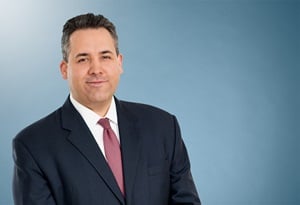The Elimination of Kickbacks in Recovery Act and COVID-19: Clinical Laboratory Compliance With EKRA in Current Pandemic
The Department of Justice (DOJ) has begun to file health care fraud and kickback cases arising from the novel coronavirus crisis. For example, on March 30, 2020, the U.S. Attorney’s Office for the District of New Jersey charged a Georgia man who allegedly ran a marketing company that illegally steered Medicare beneficiaries to testing providers for COVID-19 tests.
While it is safe to assume that the government will continue to bring similar cases under traditional health care fraud and Anti-Kickback Statute (AKS) theories based on fraud against federal health care programs, it is also predictable that, given the demand for testing and current shortages of testing resources, federal authorities will pursue cases involving unnecessary testing referral arrangements for patients who are covered by private insurance – and adopt novel charging strategies to expand the tools at their disposal.
One such statute is the Elimination of Kickbacks in Recovery Act of 2018 (EKRA), 18 U.S.C. § 220. Passed as part of the broader Substance Use-Disorder Prevention that Promotes Opioid Recovery and Treatment for Patients and Communities Act, EKRA broadly prohibits soliciting, receiving, offering or paying “remuneration (including any kickback, bribe or rebate)” in return for referrals to, or in exchange for using the services of, a “recovery home,” “clinical treatment facility” or “laboratory.”1
Violating EKRA is punishable with up to 10 years in prison and a fine of up to $200,000, for each violation.2 And, importantly and unlike the AKS,3 EKRA applies not solely to services that are covered by government payors; it applies to “services covered by a health care benefit program,” including both government payors and private insurance.4
While EKRA was enacted to target abuses arising from the opioid epidemic, the statutory language has a substantially broader reach when it comes to laboratory testing. As written, EKRA’s definition of a covered laboratory broadly encompasses to any “facility for the biological, microbiological, serological, chemical, immuno-hematological, hematological, biophysical, cytological, pathological, or other examination of materials derived from the human body for the purpose of providing information for the diagnosis, prevention, or treatment of any disease or impairment of, or the assessment of the health of, human beings.”5 Accordingly, despite the original intent of the law, the plain language of the statute does not limit enforcement to substance abuse testing cases, and could be read by a prosecutor to encompass all forms of clinical testing services – including testing for COVID-19.
EKRA is also notable because it lacks the many statutory exceptions and regulatory “safe harbors” that serve to limit the reach of the AKS, and the EKRA statutory exceptions that do exist are, in some important respects, more limited than their AKS counterparts.6 For example, unlike the AKS safe harbors, the EKRA safe harbor for payments to “bona fide” employees and independent contractors expressly provides that payments to such personnel may not “vary by (A) the number of individuals referred to a particular … laboratory; (B) the number of tests or procedures performed; or (C) the amount billed to or received from, in part or in whole, the health care benefit program from the individuals referred to a particular … laboratory.”7 As a result, while there are sound textual arguments to the contrary, it is possible that federal law enforcement authorities would take the view that, under EKRA, a laboratory cannot compensate sales employees on a commission basis or any other basis tied to lab testing volume.
In the wake of the DOJ’s first announced criminal prosecution under EKRA in January, Attorney General William Barr’s directive to pursue COVID-19-related charges, and the perils of hindsight that arise after major crises, clinical laboratories and those working with them to improve the availability of COVID-19 testing would be well advised to pay particular care to ensure that their compensation practices comply not only with the requirements of the AKS, but also EKRA.
As the number of cases around the world grows, Faegre Drinker’s Coronavirus Resource Center is available to help you understand and assess the legal, regulatory and commercial implications of COVID-19.
- 18 U.S.C. § 220(a).
- 18 U.S.C. § 220(a).
- 42 U.S.C. § 1320a-7b(b).
- 18 U.S.C. § 220(a).
- See 18 U.S.C. § 220(e)(4), 42 U.S.C. § 263a(a).
- Compare 18 U.S.C. § 220(b), with 42 U.S.C. § 1320a-7b(b)(3), 42 C.F.R. § 1001.952.
- Compare 18 U.S.C. § 220(b)(2); 42 U.S.C. § 1320a-7b(b)(3)(b), 42 C.F.R. § 1001.952(i).



